Behind the Subversion (Olavo de Carvalho)
Behind the Subversion
In early 2001, the Council on Foreign Relations (CFR), the billionaire think tank from which so many presidents and secretaries of state have emerged that some consider it a sort of meta-government of the United States, created a “task force” overflowing with Ph.D.s, chaired by the historian Kenneth Maxwell and charged with suggesting changes to Washington’s policy toward Brazil. The first list of wise recommendations, published as early as February 12, emphasized “the urgency of working with Brazil to combat the plague of drugs and its corrupting influence on governments.”
At that time, with the old cartels dismantled, the Revolutionary Armed Forces of Colombia (FARC) were emerging as the dominant force in the Latin American drug market, deliberately spared by the Clinton administration’s Plan Colombia under the pretext that the war on drugs should remain apolitical. The FARC, a communist organization, had entered the drug trade to finance their terrorist operations and bid for power. Since 1990, they had been members of the São Paulo Forum, where they coordinated their actions with the broader strategy of the Latin American left, securing political support that made them virtually immune to prosecution in several countries where they operated.
In Brazil, for example, despite the hundreds of tons of cocaine they flooded into the market each year through their associate Fernandinho Beira-Mar, and despite the occasional gunfights with the Army in the Amazon jungle, the FARC were well treated: their leaders roamed the streets freely under federal protection and were received as official guests by the PT-led government of the state of Rio Grande do Sul.
Never before had the ties between drug trafficking and politics been so close. And they were at risk of growing even more intimate, as Luiz Inácio Lula da Silva, founder of the Forum and thus the principal orchestrator of the alliance between legal leftist parties and criminal organizations, appeared poised to become the next president of Brazil.
The increasing integration of drug trafficking and politics therefore made it urgent to combat “the plague of drugs and its influence on governments.” And the only way to do that was, evidently, to dismantle the São Paulo Forum. Seen from that perspective, the task force’s recommendation seemed timely indeed. But only those who don’t understand the subtleties of meta-government would interpret it that way. The literal meaning of the phrase in fact expressed the symmetrical opposite of what the CFR actually intended.
To continue interfering with impunity in the internal politics of various Latin American nations, the São Paulo Forum needed to maintain its status as a discreet or semi-secret entity — and the very head of the task force helped with that. In an article published in The New York Review of Books — and, of course, reprinted in Folha de S. Paulo — Maxwell declared that the Forum simply didn’t exist, because “not even the most well-informed experts I spoke to in Brazil had ever heard of it.”
For a professional historian, relying on third-party opinions instead of checking primary sources — which were, at that time, abundantly available on the Forum’s own website — was a scandalous display of ineptitude. Back then, Mr. Maxwell belonged (and still belongs) to the circle of enlightened figures who were (and still are) listened to with the utmost respect by the Brazilian media, especially Folha de S. Paulo.
That seemed to offer indisputable proof that he really was a jackass, having acted in such an extravagant manner purely in obedience to his animal nature. But now I realize that didn’t explain everything. Soon afterward, another intellectual with a stellar reputation in asinine circles, Luiz Felipe de Alencastro, professor of Brazilian History at the Sorbonne and columnist for Veja magazine, shone in a CFR debate by lending his formidable authority to the claim that the São Paulo Forum was nonexistent — and even added that I was the one who had invented the legendary organization… Erasing the continental coordination of the Latin American communist movement seemed to have become a consecrated habit within the CFR.
This might be dismissed as a mere accumulation of innocent interpretive errors — if the entity hadn’t also cultivated another habit: cozy relations with the FARC. In 1999, the president of the New York Stock Exchange, Richard Grasso, a CFR member, paid a courtesy visit to FARC commander Raúl Reyes and left the meeting celebrating the community of interests between the Colombian gang and the “progressive” financial elite of the U.S.
Shortly afterward, two other CFR members — James Kimsey, chairman emeritus of America Online, and Joseph Robert, head of the real estate conglomerate J. E. Robert — had a lively meeting with FARC founder Manuel Marulanda himself, and then went to Colombian president Andrés Pastrana to successfully persuade him to make peace with the narco-guerrillas.
The Division of Labor Was Clear
The powerful figures of the CFR negotiated with the main military and financial support force of the São Paulo Forum, while their intellectual office-boys took care of misleading the operation by proclaiming that the Forum did not even exist. The CFR boasted the intention of eliminating the influence of drug trafficking in governments while actively contributing to making that influence more vast and fertile than ever before.
President Clinton also belonged to the CFR, whose infamous Plan Colombia had as its main result the elimination of competitors and the granting of an almost monopoly of the drug market in Latin America to the FARC. In 2002, the globalist overlords’ Latin American policy suffered an upgrade: alongside the effort to beautify the FARC, there was now the endeavor to make the president of the São Paulo Forum the president of Brazil.
A few days before the 2002 election, the American ambassador Donna Hrinak—who I do not know if personally belongs to the CFR but is among the founders of a group closely associated with it, the Inter-American Dialogue—openly campaigned for the PT candidate, proclaiming him “an incarnation of the American dream.” Although this was an illegal and indecent interference by a foreign authority in a national election—causing no scandal only because even imperial arrogance becomes palatable when working for the politically correct side—and although the verbal formula chosen for this was an absurdity without parallel (since it is not recorded that many Americans have as their supreme ambition to stop working at 24 years old in order to build a career in a communist party), the expression was so successful that it was soon repeated word-for-word, without citation of source, in an article in the New York Review of Books that enthusiastically celebrated Lula’s victory. Guess who authored the article? The indefatigable Kenneth Maxwell.
Given these facts, will anyone still hesitate to perceive that the links between the CFR’s mild leftism and the blood-and-guts leftism of the Marulandas and Reyeses are more intimate than would fit in the stereotyped image of an essential and irreducible hostility between reactionary capitalists and revolutionary communists? The meaning of the events is too transparent, but the brains of our elites are still capable of projecting their own obscurity onto them to avoid drawing the conclusions they impose.
Of course, I do not endorse the idea that the CFR, as an institution, is a pro-communist conspiracy center. Many of its members are American patriots who would never consciously endorse a policy harmful to their country. But it cannot be hidden that inside it a group of billionaires intent on reforming the world—incalculably powerful—has induced the entity to influence the Washington government, almost always successfully, in the most leftist and anti-American direction imaginable. In the U.S., this is common knowledge. No one doubts it. The only debate is about the “conspiracy theory” used to explain it.
Among the defenders of this theory are some first-rate intellectuals such as Carroll Quigley, history professor at Harvard and mentor to Bill Clinton, and economist Anthony Sutton, author of the classic Western Technology and Soviet Economic Development (4 vols.). It adds even more credibility to the thesis that the first is an enthusiastic supporter and the second a devastating critic of the globalist elite. What makes it even more attractive is the fact that the CFR, acknowledging its existence to the point of offering an explicit denial on its official website, avoids debating these two heavyweights and dozens of other serious scholars who have written on the subject, preferring instead to boast an easy and spurious victory in confrontation with the popular and caricatured versions of the conspiracy thesis, invented by figures like Lyndon LaRouche and Pastor Pat Robertson.
The latter is a good man who would never lie deliberately but is a loudmouth and continental champion of ecclesiastical gaffes. Debating him is the easiest thing because he will always end up saying something inconvenient and ruining his opinion—even when he is right. LaRouche, who was once a Democratic Party presidential pre-candidate, is himself a conspirator who sees conspiracies in others only through the distorting prism of his own objectives and interests. Taking these two as representative spokespersons of the conspiracy accusations against the CFR is like taking down Dr. Emir Sader and going around singing victory over Karl Marx. The CFR’s use of this evasive tactic to escape accusations is a serious indication that they have at least some truth to them.
To evaluate how alienated and out of touch with the world our economic, political, and military elite really are, just notice that their main source of information about the CFR, the Inter-American Dialogue, and other globalist organizations has been precisely Mr. Lyndon LaRouche, whose Executive Intelligence Review is read by the luminaries of the Brazilian War College as if it were the purest example of inside information (he is so well informed that he once classified me—yes, me, the poor soul—as an apostle of globalism, simply because I was writing then in a newspaper called O Globo). Other known sources in the country are all left-wing, and what they have in common with Mr. LaRouche’s newsletter is that they monstrously distort facts by presenting the globalist circles as representatives of good old “American imperialism” in an unequal fight against the national sovereignties of poor little countries.
I don’t know whether to laugh or cry seeing how many Brazilians—who are nothing like leftists—take this version seriously and base their strategic analyses and government proposals on it. It is both ridiculous and tragic. With so many primary sources and high-level diagnoses available, why eat garbage and burp the Tour d’Argent menu? From the underdeveloped cultural swamp only flowers of ignorance and self-deception bloom.
The website www.vermelho.org, for example, presents the Inter-American Dialogue as full of “personalities from the most conservative right,” and these as “representatives of the American establishment.” In the U.S., even schoolchildren know that establishment means “fancy left,” that there are no—and cannot be—“personalities from the most conservative right” inside it, and that if any national sovereignty is at risk from the establishment, it is the U.S. sovereignty above all else.
The long and fierce controversy stirred by conservatives and nationalists against the CFR, the Inter-American Dialogue, and globalist circles in general is completely unknown to the chatterboxes of the ESG and the “bunch of generals” who believe in leftist sources and in Mr. LaRouche. Among this crowd of gullible country bumpkins are many sincere patriots. But the destruction of a country begins when its patriots become fools, leaving to traitors, conspirators, and revolutionaries the monopoly on cleverness.
The history of the manipulation of Brazilian patriots by clever leftists is in itself a tragicomedy. For decades, the leftist leadership has subjected these people to a Pavlovian treatment, based on a “one-shock-one-cheese” method, which proved so effective that many high-ranking officers, ideologically anti-communist, now think it is a most honorable beauty to transform our soldiers into ditch diggers and tractor drivers serving the MST (Landless Workers’ Movement). How do you lead a human brain to plunge into such an abyss of stupidity? It’s simple: just create a selected team of well-spoken leftists and divide it into two wings, charged with opposite tasks—one infiltrated in the media, tasked with spreading scandalous lies, fomenting anti-military hatred; the other well placed inside the military circles and the ESG, responsible for flattering the Armed Forces’ ego and inducing them to conciliation and collaboration with the continental communist strategy by means of their own patriotism, easily converted into anti-Americanism through a skillfully planned flow of false information (including, of course, those provided by Mr. LaRouche).
In the first team, standouts include Caco Barcelos, Cecília Coimbra, and Luiz Eduardo Greenhalgh. In the second, Márcio Moreira Alves, Mário Augusto Jacobskind, and César Benjamin. The dual treatment leaves the victim disoriented and ends up subjugating them. Between slaps and kisses, much of our officer corps has easily fallen into the trap, showing to really have the IQ of a lab mouse. The recent lecture by the Army commander in Porto Alegre shows to what extent an institution slandered, marginalized, and trampled upon feels relief and comfort at the humiliating offer of a little place at the banquet of its traditional detractors.
Similar ploys have been applied among businessmen and politicians, with equal effectiveness.
That is why it has become so difficult to explain to Brazilians what even the slowest among American conservatives, like Pat Robertson, perfectly understand: that the globalist elite is the number one enemy of American national sovereignty and, by extension—but only by extension—of all other sovereignties.
P.S. — A friend sends me the following reminder: “On the 30th, São Paulo police arrested the Peruvian Juliana Custódio, involved in the death of a firefighter during those days. TV Bandeirantes gave the case prominence. Globo gave a brief note and then forgot about it. It so happens that yesterday a judge interviewed by Band said the following: in ten years, Brazil will have the largest terrorist network ever seen in the Americas. Personally, I think the ‘Thing’ will be formed sooner but it is inevitable. The Peruvian is pointed out as a link between the FARC and the PCC.”
Meanwhile, Mr. Lula continues to attribute the wave of violence in São Paulo to the (actually nonexistent) lack of school places for children. He is a cynic and a shameless guy like never seen before.
0


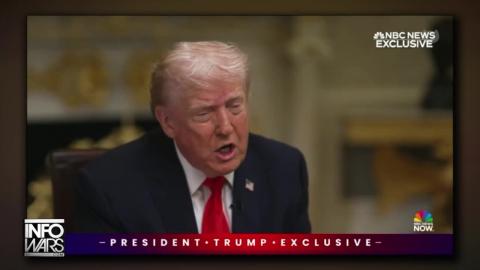
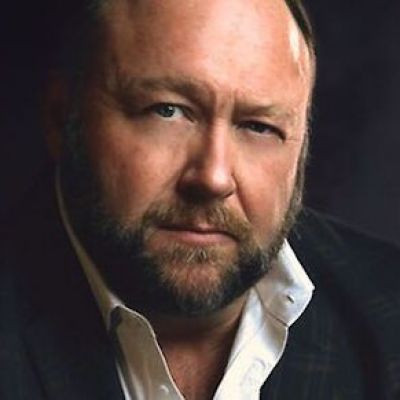 The Alex Jones Show
The Alex Jones Show
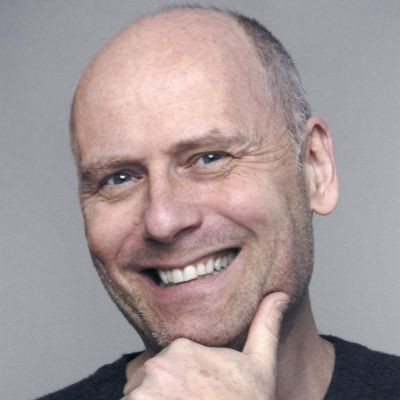 Stefan Molyneux
Stefan Molyneux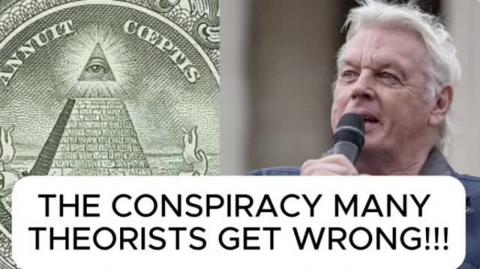
 Sant77
Sant77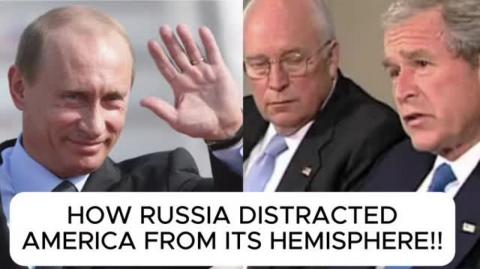

 RedKnight
RedKnight
 Freshfit
Freshfit
 LiberumArbitrium
LiberumArbitrium
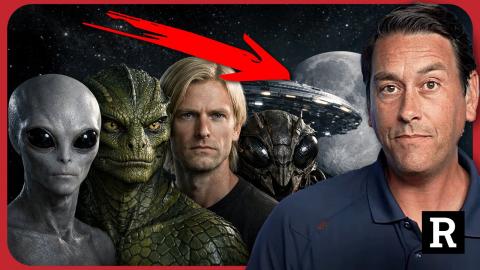
 Redacted News
Redacted News
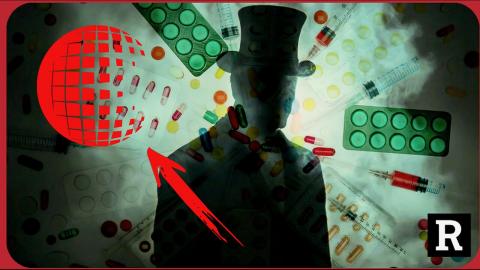
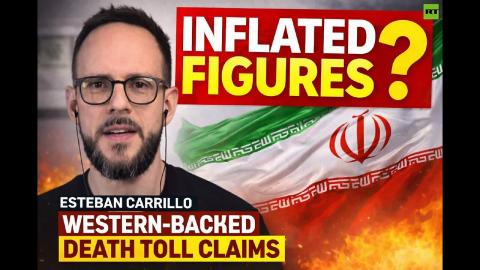
 RT
RT
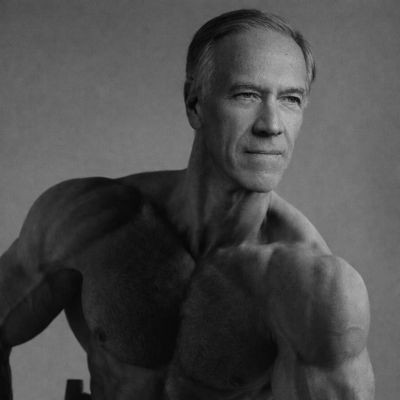 MikePompeoFanboy
MikePompeoFanboy
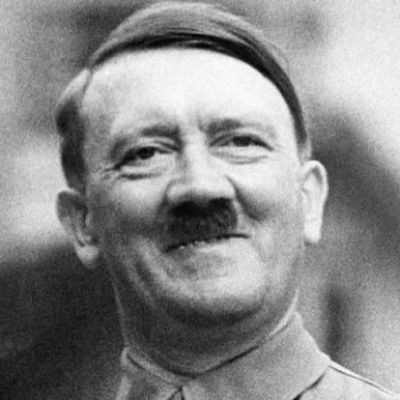 Life_N_Times_of_Shane_T_Hanson
Life_N_Times_of_Shane_T_Hanson
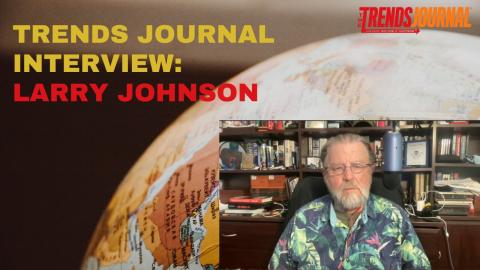
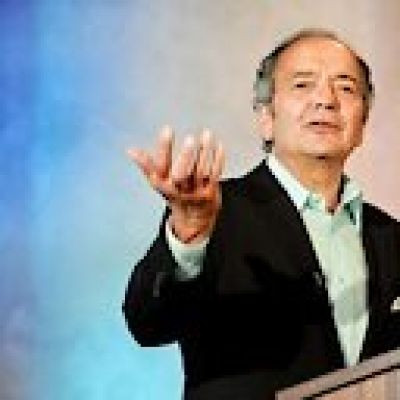 GeraldCelente
GeraldCelente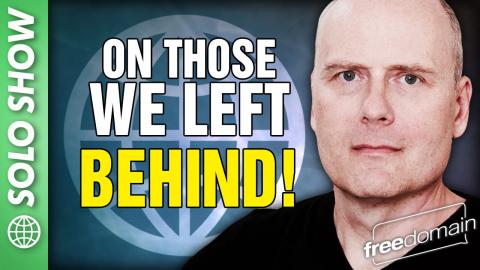
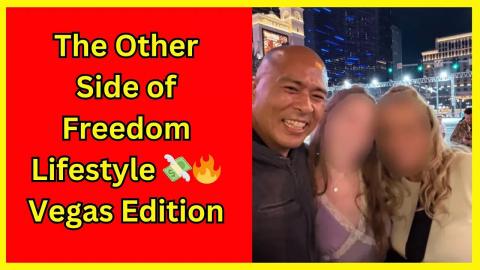
 420Jon69
420Jon69
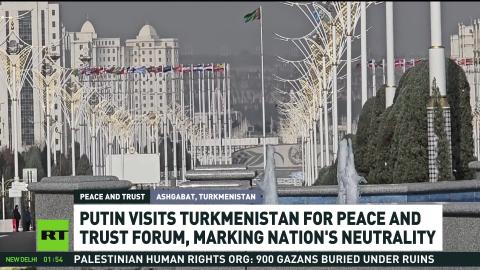


Log in to comment